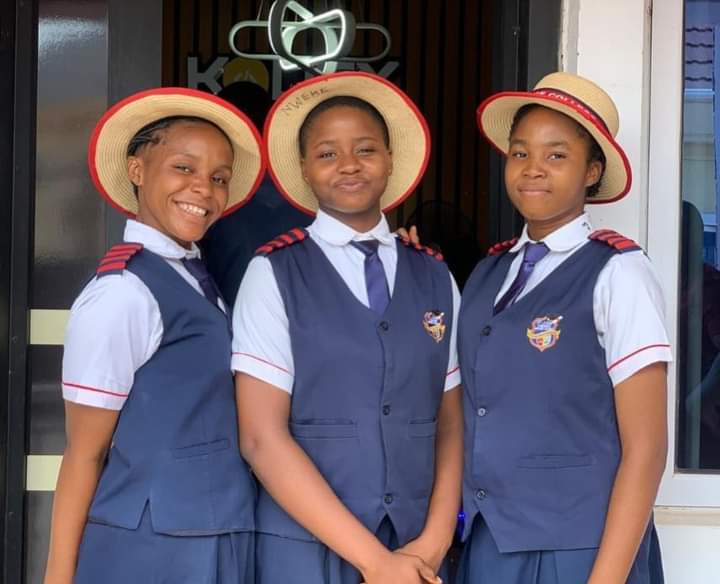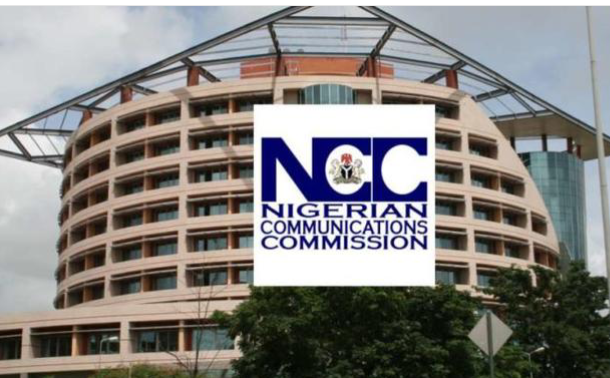Tech
Automation, Next Stage of Service Delivery In Public Sector – Danbatta


The Executive Vice Chairman of the Nigerian Communications Commission (NCC), Prof. Umar Garba Danbatta has said leveraging the potential of Information and Communication Technology (ICT) to automate service delivery should be the next frontier of excellent service delivery to Nigerians by public institutions.
Danbatta made the assertion in a goodwill message presented on his behalf by NCC’s Director, Public Affairs, Dr. Ikechukwu Adinde, at the opening ceremony of a three-day SERVICOM retreat, which started on December 1, 2021 at the Communications and Digital Economy Complex, Mbora, Abuja.
The retreat focused on, ‘Charter Performance Monitoring and Reporting’, was aimed at monitoring the implementation of the NCC’s Client Service Charter, identifying gaps, measuring and evaluating the progress of service delivery in the Commission.
SERVICOM, an acronym derived from SERVICE COMPACT WITH ALL NIGERIANS, speaks to a special social contract between the Federal Government through its institutions (Ministries, Department and Agencies) and the Nigerian people that ensures services are delivered in a courteous, prompt and efficient manner.
Speaking at the event, attended by staff of NCC, Adinde said the NCC has been living up to its expectation as one of the public institution that has continued to implement the Service Charter with all its various stakeholders. The Director Public Affairs stated that the digital economy drive of the Federal Government should mean that more services be delivered online to the people of Nigeria and in a more efficient manner in line with the philosophy of SERVICOM.
He said the NCC is an important partner of SERVICOM in its journey towards service delivery and excellence, and invited the participants to recall that fact in the passion and commitment of Prof. Danbatta in ensuring that telecom service providers deliver optimal service to varied categories of stakeholders.
“Therefore, from our perspective as regulator of the digital ecosystem in Nigeria, we feel that automation of service should be the next stage of service delivery. While we have started this journey with the example of REMITA, which has brought about a lot of efficiency and transparency into the payment remittances by public and Ministries, Department and Agencies (MDAs) of government,” Adinde stated.
On the implementation of the NCC Charter for SERVICOM, Adinde said the NCC boasts of one of the best and brightest brains that could be found in the public sector as civil servants, who are ingrained with good work ethics and culture. “Our staff are renowned for their warmth and geniality when dealing with internal and external stakeholders. They work as a team on the principle of achieving Specific Measurable, Achievable, Realistic, and Time-bound (SMART) objectives of the Commission,” he said.
Adinde also listed the roles of the Commission in collaborating with other MDAs in various ways, in order to achieve policy objectives of government in many fronts. He also highlighted a number of corporate social responsivity (CSR) projects of the Commission being implemented singly or jointly with other MDAs towards achieving the objective of government to serve the citizenry better.
As a further demonstration of the duty NCC owes telecoms consumers, whose interest must be protected in line with Nigerian Communications Act (NCA), 2003, Adinde said NCC created the Consumer Affairs Bureau in September 2001, to ensure consumer protection through policy development and monitoring, advocacy, as well as information and education of all shades of stakeholders.
“Consequently, NCC is one of the few MDAs that has a dedicated toll-free number, designed specifically for the escalation of issues between telecommunications service providers and consumers. We also constantly monitor the Quality of Service (QoS), ensuring that service delivery issues are within the acceptable key performance indicators (KPIs),” Adinde said.
Meanwhile, the National Coordinator/Chief Executive Officer of SERVICOM, Nnena Akajemili, in her remark at the event, commended NCC for contributing to the cultivation of effective communication between the Commission and its various stakeholders for improved service delivery.
Akajemili acknowledged the commitment of NCC towards facilitating major activities, even as she affirmed that the Commission had improved significantly in delivering its key regulatory functions. Akajemili also observed that NCC went the extra mile in engaging its stakeholders as well as creating affinity between itself and its stakeholders.
Akajemili stated that she was particularly gratified by NCC’s contribution of 11.94 per cent to the nation’s Gross Domestic Product (GDP), based on the National Bureau of Statistics (NBS) report for the third quarter of 2021. However, the SERVICOM Chief Executive beseeched the Commission sustain and expand on its collaboration with other Ministries, Departments and Agencies (MDAs) specifically in the area of data management, CSR, Value Added Services (VAS) and short codes, to enhance greater synergy among MDAs.
Head, Legislative and Government Relations, NCC and SERVICOM Nodal Officer at the Commission, Bashir Bello, said SERVICOM, as a service delivery initiative, requires everyone to put in his or her best in achieving desired objectives. He emphasized the role of Management’s support, education, and commitment towards improving and consolidating the various SERVICOM interventions that had been initiated.
The event was attended by SERVICOM Team leads, departmental liaisons officers in the NCC, SERVICOM rapporteurs, and other staff of the Commission.
Tech
Anambra School Emerges Winner In National Girls In ICT Competition With Groundbreaking VR Technology


St. John Vianney Science College, Igbariam, used their virtual reality project to conquer the National Girls in ICT Competition 2024, claiming the national championship title yesterday!
The National Girls in ICT Competition, organized by the Federal Ministry of Communication, Innovation and Digital Economy, is a technology innovation competition for all girls in secondary schools across Nigeria.
Their innovative project, M-Tag VR, allows users to explore iconic landmarks like Zuma Rock and learn about fascinating cultural aspects of Nigerian tribes. The girls, Immaculate Ebube Ikegwuonu, Camilla Anyadike, and Nweke-Nonso Oluchi, mentored by their coach, John Onuigbo, triumphed over teams from all 36 states.
The girls’ talent shone brightly throughout the competition. They started at the state level where they aced the Anambra state competition, then proceeded to conquer the Southeastern regional championship, defeating teams from Ebonyi, Imo, Abia, and Enugu, to make it to the national finals.
Rivers and Lagos states secured the second and third-place positions, respectively.
Tech
Google To Delete Billions Of Browser Records To Settle ‘Incognito’ Lawsuit


CNN reported that Google will delete billions of data records as part of a settlement for a lawsuit that accused the tech giant of improperly tracking the web-browsing habits of users who thought they were browsing the internet privately.
The suit was originally filed in 2020 and accused Google of misrepresenting the kind of data it collects from users who browsed the internet via “Incognito” private browsing mode in Chrome. Google agreed to settle the suit late last year, but the terms of the settlement were first disclosed in a filing on Monday.
As part of the settlement, Google must delete “billions of data records” that reflect the private browsing activities of users in the class action suit, according to court documents filed Monday in San Francisco federal court.
Google will also update its disclosure to inform users about what data it collects each time a user initiates a private browsing session. Google has already started implementing these changes.
For the next five years, Google will also let private browsing users block third-party cookies as part of the settlement. Google also will no longer track people’s choices to browse the internet privately.
Tech
NIN-SIM Linkage: NCC Directs Telecommunication Operators To Bar Non-Compliant Subscribers


The Nigerian Communications Commission (NCC) has confirmed that it would not be reviewing its deadline to bar owners of more than four SIM cards whose SIM registration data failed to match their National Identity Number (NIN) data.
A source within the Commission explained that the Commission’s position was hinged on its objective to clean the country’s SIM ownership database, and ensure that criminals could not take advantage of having multiple unlinked SIMs to carry out their nefarious activities.
“We are not standing back on our decision. March 29th is sacrosanct. Our resolve is hinged on the need to close in on the chaos of untoward ownership of multiple SIM cards with unverified NIN details. We have instances where a single individual has over 10,000 lines linked to his NIN. In some cases, we have seen a single person with 1,000 lines, some 3,000 plus lines. What are they doing with these lines?
“From our interim findings, the owners of these lines did not purchase them for decent purposes or to undertake legitimate activities.
“We have given them enough time to make the decision of which of their lines they want to keep, and discard the others. They did not. All lines in this category with unverified NINs will be barred. They will be then expected to go to their operators and decide which of the lines they want to keep, as well as submit correct NIN details.
“Some people would say they want to use it for car trackers, or for IoTs, but provision has been made for these services already. They are not under the ‘Max-4 Rule.’
“Across the world, no country allows you to have 1,000 SIM cards to make calls or texts.”
The Max-4 Rule announced by the Federal Government in April 2021 provides that telecom subscribers cannot have more than four lines per mobile network operator.
The NCC has also provided Mobile Network Operators (MNOs) an extension till July 31st 2024 within which they are expected to verify all NINs submitted by subscribers with four (4) or less SIMs, as well as bar those whose NIN fail verification with NIMC.
An authoritative source within the Commission who is familiar with the matter stated that the Commission’s management arrived at the decision at a crucial meeting it held today to review requests from the major Mobile Network Operators requesting for extension for the verification of NINs submitted.
The source also stated that the Commission is mulling the idea to approve an online application solution for MNOs where their subscribers whose NIN verification failed due to biometric mismatch can update their records on the app, while existing subscribers can register additional lines.
-



 Entertainment3 days ago
Entertainment3 days agoWhy I’m Not Ready For Kids – Singer Burna Boy Reveals
-



 Entertainment5 days ago
Entertainment5 days agoMen Of The Lagos State Police Command Have Arrested Singer Portable
-



 News3 days ago
News3 days agoThe Peruvian Government Has Officially Classified Transgender, Nonbinary And Intersex People As “Mentally ill”
-



 GROpinion3 days ago
GROpinion3 days agoExposing the Malicious Sabotage of MoMo PSB Project in Enugu Ezike






